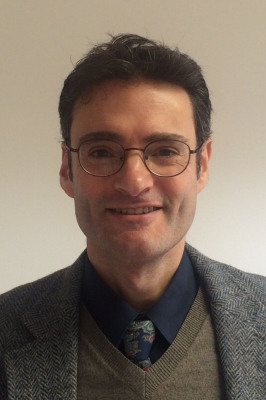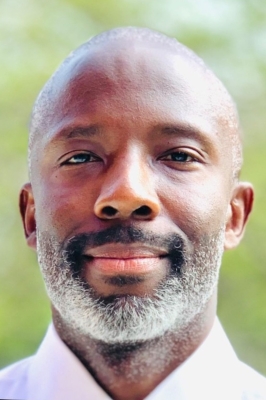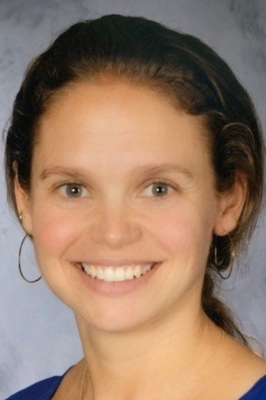Education
The field of education includes teaching, administrative, and coaching positions in public schools and charter schools, independent schools, higher education, summer camps, and adult education. It can also include educational policy, research and consulting; educational non-profits and organizations related to access and social justice; and educational publishing and technology (EdTech), as well as a myriad of careers such as museum education, health education, environmental education, and training in businesses and organizations.
The Big Picture
Middlebury alums are college professors, elementary school teachers, high school counselors and speech pathologists, deans, admissions counselors, directors and program coordinators at educational non-profits, educational consultants, editors at university presses, teachers at gap-year and semester programs, environmental educators, nutritionists, museum educators, international educators, product managers in EdTech and more.
And Middlebury students have taken part in thousands of different types of educational internships from Breakthrough Collaborative to the Department of Education, to CitySquash.
What You Can Expect
You could be drawn to work in education if any of the following are true:
- You want to make a difference in people’s lives…
- You love to share information with others…
- You have a passion for a particular subject area…
- You want to influence the next generation…
- You love kids…
- You love researching, writing, and creating knowledge…
- You believe deeply that everyone has a right to be successful…
- You want to influence educational policy…
- You love sports…
- You want to connect people to their environment…
- You are good at mentoring others…
- You want to teach in another country…
Areas of Focus
Education Administration
Graduates can pursue roles in education administration at various levels, such as becoming a school principal, assistant principal, or district superintendent. These positions involve overseeing school operations, curriculum development, staff management, and student services.
Education Policy
Graduates can work in education policy organizations, government agencies, or advocacy groups, where they can contribute to shaping education policies, conducting research, and advocating for educational reforms at the local, state, or national level.
Curriculum Development
Graduates can join educational publishing companies, educational technology firms, or school districts as curriculum developers. They work on designing, evaluating, and implementing instructional materials, programs, and assessments to enhance student learning.
Educational Technology
With the increasing integration of technology in education, graduates can pursue careers in educational technology (sometimes called edtech), including instructional design, e-learning development, educational software development, or educational technology consulting. They can contribute to creating and implementing innovative technological solutions in classrooms and educational settings.
School Counseling
Graduates can become school counselors, providing academic, career, and personal counseling to students. They assist with academic planning, college applications, and social-emotional development, supporting students in their personal and educational growth.
Higher Education
Graduates can explore careers in higher education institutions, working as admissions officers, academic advisors, student affairs professionals, or faculty members. These roles involve supporting students in their academic journey, coordinating programs, and conducting research.
Education Consulting
Graduates can work as education consultants, providing expertise and guidance to schools, districts, or educational organizations. They may focus on areas such as curriculum design, assessment strategies, school improvement initiatives, or educational technology integration.
Adult Education
Graduates can pursue careers in adult education programs, community colleges, or vocational training centers. They can teach adult learners, design training programs, or coordinate workforce development initiatives.
Nonprofit and NGO Work
Graduates can join nonprofit organizations or non-governmental organizations (NGOs) that focus on educational initiatives. These organizations may work in areas such as education access, literacy, education for underprivileged communities, or international education development.
Educational Research
Graduates interested in research can pursue careers in educational research institutions, think tanks, or academic institutions. They can conduct research on various educational topics, contribute to policy discussions, and publish findings to advance the field of education.
Top Resources
Public School Teaching & Administration
Teaching or working at a public school allows you to live anywhere in the U.S. and it helps you be part of the community while giving back and making a difference in children’s lives. Although all 50 states and the District of Columbia require teacher licensure, their rules vary by state. Teaching at a public school right after college may require provisional certification. Here are some resources to get you started.
Summer Teaching/Education Experiences
-
Breakthrough Collaborative
The premier pre-professional teacher residency program.
-
Generation Teach
Award-winning, national K-8 summer teaching fellowship.
-
Uncommon Schools Summer Teaching Fellows
If you want to join the fight for educational equity, the Summer Teaching Fellowship is the perfect program for you.
-
Teach for America Internships & Fellowships
They offer paid internships for undergraduates from all majors and colleges across the country.
-
Internships at U.S. Dept. of Education
Internships in government and federal education, policy, and administration.
Public Education Job Resources
-
SchoolSpring
The premier online employment source for educators.
-
Nemnet Minority Recruitment
Committed to assisting schools and organizations in the recruitment and retention of diverse teachers, administrators & coaches.
Public School Teacher Preparation/Fellowships and Residencies
-
MATCH Corps
Designed to close the Achievement Gap between minority and non-minority students, and economically disadvantaged students.
-
Mississippi Teacher Corps
Provide liberal arts graduates with a structured entry into the teaching profession.
-
Math for America MfA
A 5-year MfA Fellowship which includes a full tuition scholarship for a master’s degree program and 4-years of teaching in NYC.
-
Miami Teaching Fellows
Providing Miami-Dade County with a new group of teachers who will work to increase student achievement.
-
Math for America MfA
A 5-year MfA Fellowship which includes a full tuition scholarship for a master’s degree program and 4-years of teaching in NYC.
-
Miami Teaching Fellows
Providing Miami-Dade County with a new group of teachers who will work to increase student achievement.
-
NYC Teaching Fellows
The NYC Teaching Fellows program prepares college graduates to become exceptional teachers.
-
NYC Teaching Fellows
A subsidized Master’s degree program
-
Teach for America
Trains nearly 2,000 individuals, provides them training during summer institutes, places them as full-time, paid teachers.
-
Teach Kentucky
Attracting well-qualified college graduates to Louisville, KY, through an Innovative and supportive Teacher Recruitment Program.
-
The New Teacher Project (TNTP)
A national nonprofit founded by teachers with the goal of offering all children an excellent education.
Private School Teaching & Administration
Private schools, also known as independent schools, include both day and boarding schools. Because private schools do not receive tax dollars, removing state requirements, they often have more flexibility in the courses they offer and the curriculum standards they use, and teachers sometimes have more autonomy in the classroom. Teachers and administrators are also often asked to take on additional responsibilities in the lives of their students and school, such as coaching, academic advising, student organization advising, residential life, and more. Here are some resources to get you started.
Independent Schools Summer Teaching Internships (these schools and many others are also great places to work)
-
Choate Rosemary Hall
Typically, 30-35 interns are needed (junior status-rising senior)
-
Northfield Mount Hermon School Summer Teaching Intern Program
Summer academic program for 7-12 including college prep and ESL
-
Groton School Teacher-Intern Program
A coeducational, primarily residential school of 175 boys and 175 girls in grades eight through twelve.
-
St. Paul School Summer Teaching Internship
2 internship programs for juniors, seniors and Teaching Fellows program for recent grads.
-
Tabor Academy Summer Teaching Internship
Interns will lead extracurricular activities, teach courses, and manage the camp community.
-
Taft Summer School
Summer Teaching Fellows assist in Science, English, and Math courses, but have also been assigned to ESL and Art.
-
Woodberry Forest School
The Kenan-Lewis Fellowship Program gives recent college graduates a 2-year appointment to the school's faculty.
Independent School Job Resources
-
Carney, Sandoe and Associates
Provides placement in independent and like schools all over the country and all over the world.
-
Educator's Ally
Represent and recruit for boarding and days schools in the Northeast with emphasis on placements in NJ, CT and NYC.
-
NEMNET
Committed to assisting schools and organizations in the recruitment and retention of diverse teachers, administrators & coaches.
-
Southern Teachers Agency
A PK-12 job board in US Southern States.
-
Cal/West Educators Placement
Placement in independent, private, and charter schools throughout CA and other western states.
Higher Education
Higher Education in the U.S. refers to a variety of both public and private institutions of post-secondary education. Positions in higher education fall into the larger general categories of faculty (teaching/research), and administration, which can be anything from deans, admissions counselors, human resource officers, etc. Most faculty positions require a Doctoral degree and include teaching, research and advising responsibilities. Some positions, such as adjunct or positions at community colleges may only require a master’s degree. Here are some resources to get you started.
-
Higher Education Jobs
Database with jobs in higher education.
-
The Chronicle of Higher Education
Weekly news and job-information source for college and university faculty members, administrators, and students.
-
Inside Higher Ed
The leading digital media company serving Higher Education Careers.
-
NASPA
The leading association for the advancement, health, and sustainability of the student affairs profession.
-
The Placement Exchange
The definitive resource for the Student Affairs job placement process.
-
Higher Education Recruitment Consortium (HERC)
A non-profit consortium of over 700 colleges, universities, hospitals, research labs, and government agencies.
Education Nonprofits
Working at an educational non-profit or NGO may be a good way to combine your interest in education with wanting to do something good for the world. Non-profits are tax-exempt organizations that are typically mission-driven to serve the public interest. Those focused on education are often involved in educational access and social justice issues. Here are some examples to get you started.
-
826 Valencia
Dedicated to supporting under-resourced students ages 6-18 with their creative and expository writing skills.
-
Practice
A New York City-based B-Corp that partners with principals, teachers and parents to close the opportunity gap in urban schools.
-
Children's Defense Fund
They work at the intersection of well-being and racial justice for children and youth.
-
City Year
An AmeriCorps national service program 10-months of service focusing on civic leadership, team building and mobilization.
-
Girls Who Code
Girls Who Code was founded with a single mission: to close the gender gap in technology.
-
Girls on the Run
Inspires girls to be joyful, healthy and confident using a fun, experience-based curriculum which creatively integrates running.
-
The Dream Project
Committed to improving educational opportunities for children in rural areas and small communities in the Dominican Republic.
-
Broadway for All
Their mission is to transform the American stage and screen to reflect the diversity of America.
-
Great Books
A nonprofit educational organization that creates reading and discussion programs for students and adults.
-
Center for Talent Development
Ensures gifted students receive the education, encouragement and support they need to feel confident and accomplished.
Education Research/Policy
Jobs in educational research or policy might have you working at a think tank, government agency, NGO, consulting firm, law office, publishing house, library, etc.
-
Rural Education Action Project
An impact evaluation organization that aims to inform sound education, health and nutrition policy in China.
-
Institute for Educational Leadership
IEL serves as a catalyst that helps policymakers, administrators, and practitioners at all levels to bridge bureaucratic silos.
-
Institute for Higher Education Policy
Advocate for equitable access to the rewards of higher education.
-
Learning Policy Institute
Improve education policy through independent, high-quality research.
-
The Education Trust
A nonprofit that works to close opportunity gaps that affect students of color and students from low-income families.
-
The New Teacher Project
Provide excellent teachers to the students who need them most and by advancing practices that ensure effective teaching.
-
Yale Center for Emotional Intelligence
The Center conducts research and teaches people of all ages how to develop their emotional intelligence.
-
Internships within the Executive Office of the President
Gain hands-on experience in federal policy at the White House.
-
U.S. Department of Education
Work on federal education policy and administration as an intern.
International Education
Teaching overseas is an opportunity to combine your interest in teaching with living in another country. Many opportunities do not require a teaching certificate, especially those involving teaching English. Other opportunities may require teacher certification and previous teaching experience. NGOs might provide another way to seek non-teaching educational positions overseas. Here are some resources to get you started.
-
Teach Abroad
Opportunities around the globe: teaching, internships, volunteer, Eco/adventure, US universities abroad.
-
Peace Corps
Education is the Peace Corps’ largest program area. You can earn your Teaching English as a Foreign Language (TEFL) certificate.
-
NALCAP: North American Language and Culture Assistants Program in Spain
A 9-month educational outreach program sponsored by the Ministry of Education of Spain through the Embassy of Spain in the U.S.
-
Search Associates
Places over 1000 teachers, administrators and interns in international schools throughout the world.
-
Transitions Abroad
THE Web portal for Work Abroad, Study Abroad, Cultural Travel Overseas, and International Living.
-
International School Services
The world’s leader in providing a comprehensive range of educational services for schools, educators, families and corporations.
-
Footprints Recruiting
The world’s largest ESL employment agency focused on placing great teachers in great teaching opportunities.
-
TEFL
TEFL vigorously supports and promote the development of English Language Teaching as a global enterprise.
-
TESOL
Represents teachers, administrators, researchers, and other English language teaching professionals worldwide.
-
United World College
Schools and colleges in 16 countries and consists of more than 60,000 alumni and other members in virtually every country.
-
Bosnia Initiative for Local Development
Includes education and community service projects focused on helping young people succeed and helping families and communities.
-
EPIK-English Program in Korea
A unique teaching opportunity sponsored by the Korean Ministry of Education. Teach English to Korean students and teachers.
-
Japan Exchange and Teaching Program
Help enhance internationalization in Japan by promoting mutual understanding between Japan and other nations.
Outdoor/Experiential Education
Educators who want to teach outside of the walls of a classroom might be interested in environmental education or other experiential education which might include travel education, camps, and gap-year or semester programs. Here are some examples to get you started.
-
Overland Travel
Summer travel adventures with high school students in the U.S. and internationally led by college-aged students.
-
EXPLO
Exploration Summer Programs held on the campuses of Yale, Wellesley, and Wheaton.
-
Chewonki Semester School
A Maine Coast Semester that challenges students to break through classroom walls and not just learn, but do.
-
Semester Schools Network
A group of schools across the U.S. offering semester-long educational opportunities for talented high school students.
-
Where There Be Dragons
Dedicated to cross-cultural education, offering summer, gap-year, and semester programs.
-
Road Scholar - formerly known as Elderhostel
Dedicated to lifelong learning, meeting new people, touching history where it happened, and delving deep into the cultures.
-
Shelburne Farms
They use their food and farming practices to educate others about sustainable agriculture and shared connections to the soil.
-
Hurricane Island Outward Bound School
Based on an island in Maine, this Outward Bound program engages college students looking for wilderness adventure.
Stories from the Field
To learn more about potential career roles, see the following resources in which alums share their career experiences.
MiddConnect
Need career advice? MiddConnect is your gateway to connecting with Middlebury’s global network of alumni and parent volunteers. Search an extensive database using filters like employer, job role, location, or major to find people who align with your career interests.
Use MiddConnect to:
- Set up 1:1 conversations with alumni and parents.
- Explore career paths and industries.
- Network for advice when applying for roles.
MiddConnect is part of the Midd2Midd platform, which fosters mentoring, networking, and engagement within the Middlebury community worldwide. Whether you’re seeking a mentor, exploring career options, or sharing your expertise with others, MiddConnect helps you build meaningful connections across the Middlebury community.
futureforward
Watch alumni and parent leaders discuss their industries, share current trends, and provide actionable steps to help you break into those fields.
MIDDVantage
Explore virtual career exploration episodes featuring Middlebury alumni and guests offering insights into various career paths and industries.
Live from DC
Watch live webinars featuring experts in policy-driven career fields, discussing how current events shape opportunities and challenges.

Alumni Spotlight 3/3/25: Adam Rosenberg ’87, BSE ’92
Adam has built a career in education, spanning roles from English teacher to superintendent. Now an independent educational consultant, Adam draws on decades of leadership experience to guide schools through transformative change. His career highlights include leading school improvement initiatives, fostering innovative teaching practices, and mentoring educators. Passionate about lifelong learning, Adam is on Midd2Midd offering to support Middlebury students through career exploration, interview preparation, and work-life alignment.
Interested in learning more? Connect with Adam on Midd2Midd.

Alumni Spotlight 2/24/25: Warren Isaak Reid ’94
Championing Diversity in Education for 30+ Years
For over three decades, Warren Isaak Reid ’94 has dedicated his career to increasing diversity in education. As the Founder and CEO of NEMNET, a national diversity recruitment and consulting firm, Warren has helped over 350 schools and institutions recruit and retain educators of color, fostering more inclusive learning environments across the country.
At Middlebury, Warren studied Political Science, played football and track, and led efforts to promote diversity, including drafting the R.E.I.D. Bill to ensure racial and ethnic inclusion in student government. His passion for education led him to Harvard Graduate School of Education, where he earned a master’s in Administration, Planning, and Social Policy.
After working in education administration at Pomfret School and Yale University, Warren fully committed to growing NEMNET, which now serves over 2,000 educators annually. His work continues to shape how schools approach hiring, staff diversity, and professional development.
Interested in learning more?
- Connect with Isaak on Midd2Midd.
- Explore opportunities through NEMNET Minority Recruitment.

Alumni Spotlight 2/14/25: Katie Sparkes ’09
Katie Sparkes ’09 has built a career at the intersection of education, writing, and nonprofit leadership. After graduating from Middlebury with a degree in History, Education Studies, and Spanish, Katie started on her career journey as a Teach For America corps member, teaching middle school writing in New York City. Since then, she has taken on roles as an educator, instructional coach, and department chair, all while pursuing her interest in empowering students and advancing educational equity.
Currently, Katie works as a fundraising and development consultant with Radical Partners, where she identifies funding opportunities to support leadership development and community engagement initiatives. In addition, she contributes as a freelance writer and editor for organizations like CommonLit, IXL Learning, and NeighborSchools, helping to create impactful educational content.
Katie’s work reflects her dedication to education, social impact, and personal growth. Whether coaching lacrosse teams, leading wellness programs, or refining grant applications, Katie demonstrates a strong commitment to making a difference.
Fun Fact: While at Middlebury, Katie studied abroad in Ecuador and played on the Women’s Varsity Lacrosse team.
Connect with Katie on Midd2Midd. She is available to help students explore their potential career path and talk about working in primary/secondary education!

Alumni Spotlight 1/27/25: Maya Doig-Acuña ’16
Bridging History, Memory, and Community
Maya Doig-Acuña ’16 has dedicated her academic and professional career to uncovering the rich narratives of Afro-diaspora, feminist studies, and Black geographies. Currently pursuing a PhD in African & African American Studies with a focus on History at Harvard University (graduating in 2025), Maya’s research examines 20th-century Caribbean migration, memory, and community formation in Central America—particularly Panama—and Brooklyn, New York, where she was born and raised.
Her journey began here at Middlebury, where she graduated with highest honors in American Studies. As a student, Maya cultivated her passion for storytelling and cultural heritage through roles such as Writing Tutor and Independent Research Fellow.
Professionally, Maya’s expertise extends beyond academia. She has served as a Smithsonian-ACHP Cultural Heritage Fellow, a Project Coordinator and Contributing Writer at The Futuro Media Group, and an editorial intern at organizations like Penguin Random House and Charlotte Sheedy Literary Agency. Her published work appears in Southern Cultures Journal, Guernica Magazine, and Remezcla.
Connect with Maya on Midd2Midd. She is available to help students explore graduate/professional school, choosing a major and projects, and navigating life at Middlebury!

Alumni Spotlight 1/20/25: Amari Simpson ’16
From Middlebury to EdM to PhD—A Journey of Impact and Leadership
Amari Simpson ’16 (Psychology, Global Health, Education Studies) embodies the transformative power of a liberal arts education. During his time at Middlebury, Amari was deeply engaged in exploring what makes a “good life” through thought-provoking seminars and global experiences. These questions fueled his passion for education, equity, and leadership, leading him to pursue advanced degrees at Boston University (EdM in Curriculum and Teaching, 2018) and the University of Illinois at Urbana-Champaign (PhD in Education Policy, Organization, and Leadership, 2022).
As a Middlebury student, Amari’s sophomore seminar challenged him to think critically about the value of his education and how it shaped his identity and ambitions. Studying abroad further deepened his appreciation for the unique accountability and empowerment fostered at Middlebury. He often reflects on the community of alumni who paved the way and those who continue to shape the world in meaningful ways.
Today, Amari serves as Director of Equity and Diversity at Colgate University, where he inspires students to navigate their educational journeys and define their own paths to success. Through his work, he highlights the importance of understanding diverse perspectives and creating spaces for belonging and growth.
“You aren’t alone—there are people before you who pursued your major, and there will be people after you. You have the fail-safe of this community.”
Want to learn from Amari? He’s on Midd2Midd and available to help students explore career path exploration, general coaching, grad/professional school advising, navigating life at Midd, networking, and more!

Alumni Spotlight 1/13/25: Alice Tower Knapp ’81
Meet Alice—a Hall of Fame athlete and author, who has made remarkable contributions both on and off the slopes. A three-time First-Team All-American in Nordic skiing at Middlebury, Alice was part of two National Championship teams and later joined the U.S. National Development Ski Team. Beyond her competitive career, she has dedicated her life to teaching, coaching, and officiating in Anchorage, Alaska, where she grew up.
Recently, Alice published On Track! The Nordic Skiing Association of Anchorage, a comprehensive history of the club that transformed Anchorage into a premier Nordic skiing destination.
Want to learn from Alice? She’s on Midd2Midd and available to help students explore career paths in education and sports, leisure, & travel.

Alumni Spotlight 1/6/25: Alicia Mathewson ’92
Meet Alicia Mathewson—a Middlebury alumna whose career blends creativity, education, and well-being. As a music teacher at Inly School and a transformational life coach, Alicia has over 25 years of experience in teaching and the arts.
She’s also a singer/songwriter, sound healer, and meditation leader with music streamed in over 130 countries. Want to learn from Alicia? She’s on Midd2Midd and eager to help students explore career paths, balance priorities, and uncover their unique potential.

